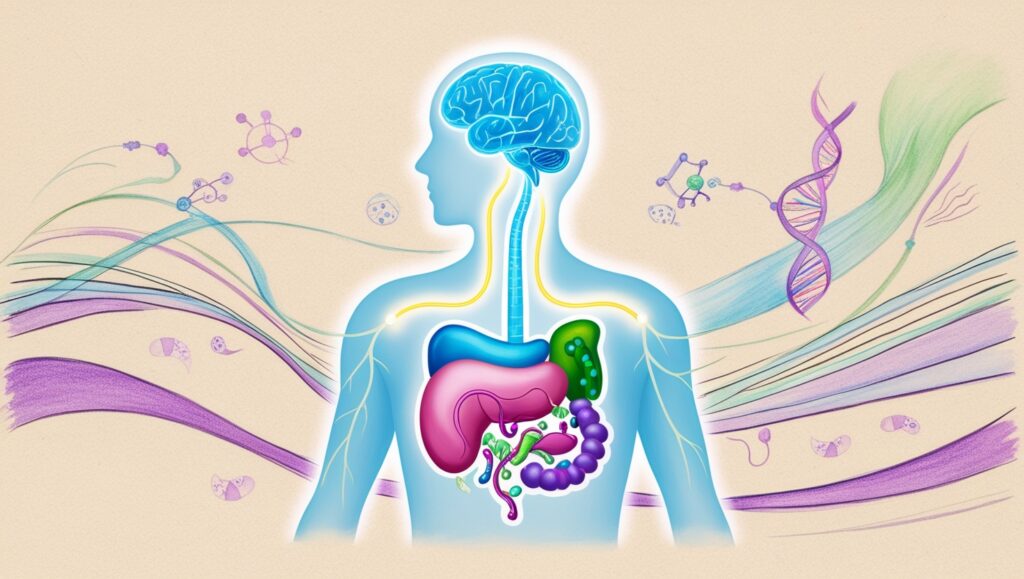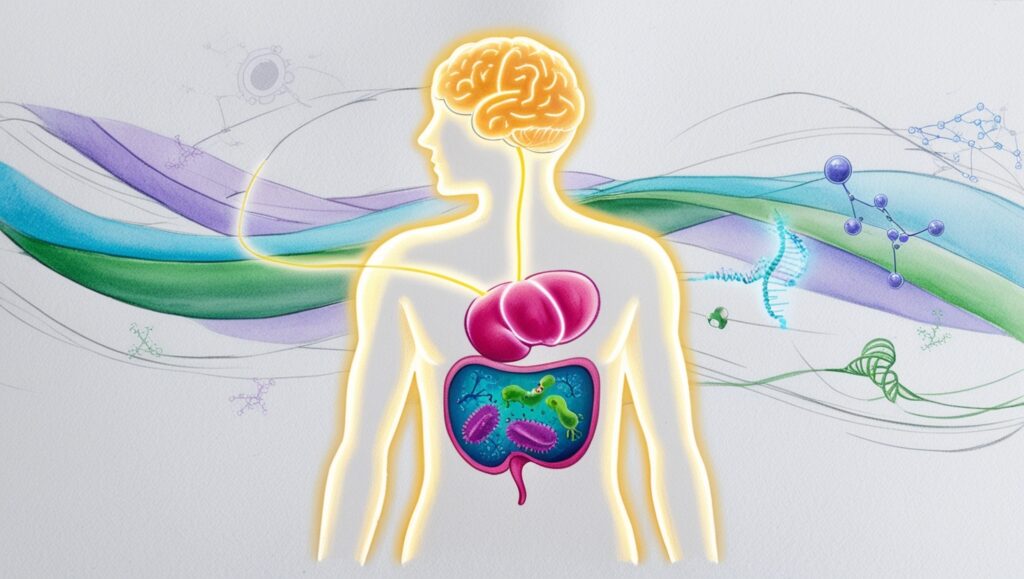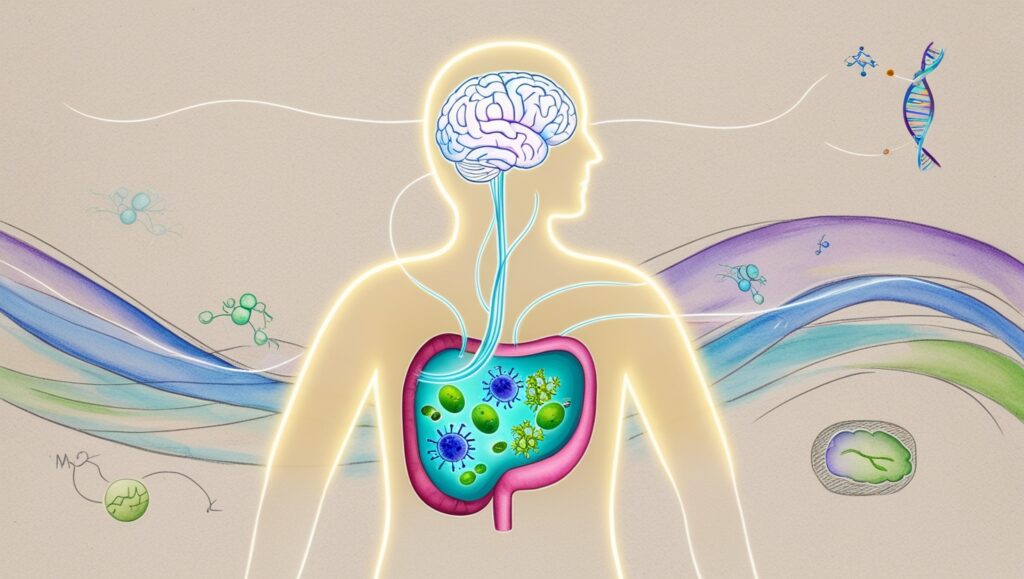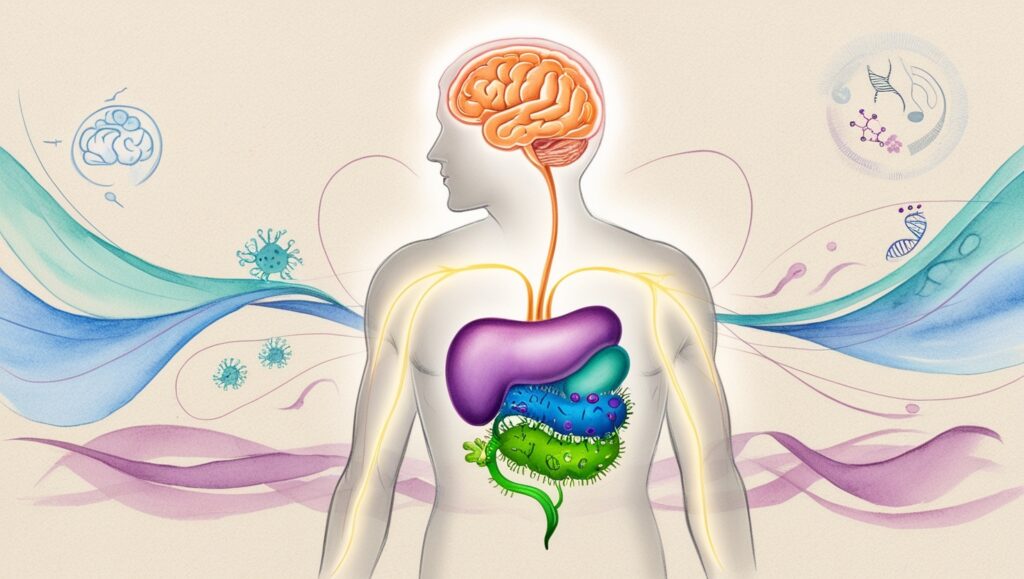How Do Gut Bacteria Shape the Brain 2025
How Do Gut Bacteria Shape the Brain 2025
🧠 Introduction: The Gut-Brain Superhighway
For years, scientists believed the brain ruled the body in isolation. However, modern research has reshaped that understanding. By 2025, the connection between the gut and brain—commonly called the gut-brain axis—has emerged as a central focus in neuroscience and medicine.
This discovery reveals that the trillions of microorganisms in your digestive system don’t just help digest food—they can actually shape how you think, feel, and behave. In this detailed guide, we’ll break down how your gut bacteria influence your brain health, mood, development, and even the risk of mental illness.
Let’s explore this fascinating inner connection.
What Are Gut Bacteria?
Your digestive tract is home to an entire ecosystem of microscopic organisms known as the gut microbiota. This community includes bacteria, viruses, fungi, and archaea, but the most widely studied are bacteria. These bacteria live mostly in the large intestine and weigh about as much as your brain—roughly 1.3 kilograms.
These microbes perform essential functions, such as:
- Digesting fiber and complex carbohydrates.
- Producing vitamins like B12, folate, and vitamin K.
- Regulating immune responses and reducing inflammation.
- Producing chemicals that directly influence the brain, including neurotransmitters.
By 2025, researchers have confirmed that changes in gut bacteria can alter mood, brain development, and even mental disorders like anxiety and depression.




What Is the Gut-Brain Axis?
The gut-brain axis is a two-way communication network between your gut and your brain. It consists of several key channels:
- The Vagus Nerve: A major nerve running between the brainstem and the intestines. It sends signals in both directions.
- Neurotransmitters: Gut microbes produce serotonin, dopamine, and gamma-aminobutyric acid (GABA)—all of which affect mood and behavior.
- Immune System Signaling: Around 70% of your immune system lives in your gut. Bacteria influence how your immune system functions, and this, in turn, affects brain health.
- Metabolic Byproducts: Gut bacteria release short-chain fatty acids (SCFAs), such as butyrate and acetate. These can cross the blood-brain barrier and reduce brain inflammation.
This means your gut isn’t just digesting your lunch—it’s also helping to regulate your brain chemistry.
How Gut Bacteria Affect Brain Development
Even before you’re born, the microbes in your mother’s gut start influencing your future brain development. Here’s how:
- During pregnancy, maternal gut microbes shape the baby’s immune and nervous systems.
- In infancy, breast milk helps feed good bacteria like Bifidobacteria, which contribute to healthy brain growth.
- In early childhood, gut bacteria help train the immune system and influence emotional behavior.
If this development is disrupted—for instance, by antibiotics, poor nutrition, or cesarean birth—it may lead to long-term effects on mood, cognition, and even the risk of autism spectrum disorders.
Animal studies have shown that mice raised in germ-free environments have altered brain structures, exaggerated stress responses, and impaired memory. Remarkably, introducing healthy gut microbes often reverses these issues.
Gut Microbiome and Mental Health
Mounting evidence connects imbalanced gut bacteria (called dysbiosis) to mental health conditions:
- Depression and Anxiety: People with these disorders often have reduced levels of beneficial microbes. These bacteria normally produce serotonin, the “feel-good” brain chemical.
- Autism Spectrum Disorder (ASD): Children with ASD frequently show distinct gut bacteria patterns. Some experimental treatments involving probiotics and microbiome therapy have shown promise.
- Neurodegenerative Diseases: Parkinson’s and Alzheimer’s disease may begin in the gut. Gut inflammation and leaky gut syndrome have both been linked to early signs of these disorders.
By 2025, scientists are testing new therapies that include psychobiotics—probiotics designed to improve mood and brain health—and even fecal transplants from healthy donors.
Diet and Brain Health Through the Gut
What you eat has a direct effect on your gut microbes. Here’s what we know:
- A fiber-rich diet helps feed bacteria that produce anti-inflammatory SCFAs.
- Fermented foods like yogurt, kimchi, and kefir introduce beneficial bacteria to your gut.
- Polyphenols found in dark chocolate, berries, and green tea help support bacterial diversity.
- Excess sugar, processed foods, and artificial additives reduce the number of good microbes and increase harmful ones.
These dietary choices can significantly affect your brain’s performance, clarity, emotional balance, and resistance to disease.
New Discoveries in 2025
Thanks to advances in microbiology and neurotechnology, we now have more precise ways to understand how the gut affects the brain. Here are some highlights:
- AI Models: Machine learning is now being used to map individual microbiomes and predict their effect on cognitive health.
- Personalized Psychobiotics: Scientists are developing customized probiotics tailored to your gut’s microbial DNA and psychological profile.
- Biomarker Tests: New non-invasive tests can identify early signs of depression or dementia based on gut bacteria in stool samples.
- Smart Pills: Tiny ingestible devices can monitor your gut in real-time and deliver specific nutrients or microbes as needed.
These innovations mark a new era where gut health is no longer separate from brain care—it’s central to it.
Summary Table: Gut-Brain Influences
| Component | Gut Role | Brain Effect |
|---|---|---|
| Serotonin & Dopamine | Produced by gut microbes | Mood regulation |
| Vagus Nerve | Sends messages between gut and brain | Stress and emotion control |
| Immune System | Controlled by gut microbiota | Reduces inflammation in the brain |
| SCFAs | Byproducts of fiber digestion | Strengthens blood-brain barrier |
| Diet | Alters gut microbiota | Affects memory, clarity, and focus |
Practical Tips to Improve Gut and Brain Health
If you’re looking to support both gut and brain health at the same time, here are some practical actions you can take:
- Eat more prebiotic-rich foods like garlic, onions, and oats.
- Add probiotics through yogurt, kefir, and fermented vegetables.
- Reduce processed foods and refined sugars.
- Manage your stress through exercise, meditation, or therapy.
- Sleep at least 7–8 hours per night.
- Drink plenty of water to support digestion.
By taking these steps, you can promote a gut environment that feeds your brain—literally.
Final Thoughts
The idea that your gut controls your brain may seem surprising, but the evidence is clear: the two are deeply intertwined. By nurturing your gut microbiome, you’re not just aiding digestion—you’re also promoting emotional resilience, sharper memory, and long-term mental wellness.
The future of neuroscience may very well begin in the gut. As our understanding grows, it’s becoming increasingly clear that healing the mind requires caring for the microbes inside us.
External Resource
For more on this topic, explore the Wikipedia page on the Gut–Brain Axis:
https://en.wikipedia.org/wiki/Gut–brain_axis
Related Blogs from EdgyThoughts
- Curious how motivation connects with brain chemistry? Check out our blog:
https://edgythoughts.com/how-does-dopamine-influence-motivation-2025 - Interested in how the human brain could be simulated by AI? You’ll love this:
https://edgythoughts.com/quantum-ai-simulating-the-human-brain-2025
What If Dragons Once Ruled Ancient Earth?
https://edgythoughts.com/what-if-dragons-once-ruled-ancient-earth/
How Do Vaccines Train the Immune System 2025
https://edgythoughts.com/how-do-vaccines-train-the-immune-system-2025/






2 Comments